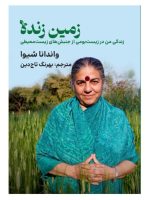
FASIH, Esma’il (Esmāʿil Faṣiḥ, a.k.a. Nāṣer; b. Tehran, 21 February 1935; d. Tehran, 15 July 2009), eminent Persian novelist and translator.
Fasih was born in Bāzārča-ye Darḵungāh, in the neighborhood of Galubandak, in the then central precincts of Tehran. He was the last child of Arbāb Ḥassan, an illiterate grocery store owner who passed away when Fasih was barely three years old, and Turān Ḵanom, Arbāb Ḥassan’s second wife (Badiʿ, p. 1; Kamāli Dehqān, 2009, p. 8). Fasih grew up in an overcrowded home among his nine other surviving siblings. After finishing his six years of grade study at ʿOnṣori Elementary School at the top of his class in 1947, he continued his schooling at Rahnemā High School where he received a diploma during the turbulent final months of Moṣaddeq’s premiership in 1953 (see COUP D’ETAT OF 1332 Š./1953). The imprints of this period of his life deeply and extensively inform all of his writing. His Dard-e Siāvaš (The Pain of Siavash, 1985) is historically and symbolically based on this tragic moment in Iran’s modern history.
Fasih left Iran in 1956, and eventually ended up in Montana State College in Bozeman, Montana. Beginning with his junior year at the college, he transferred to the University of Montana in Missoula where he earned a BS in Chemistry and a BA in English. Upon graduation, he moved to San Francisco, where he fell passionately in love and married Annabel Campbell, a Norwegian girl. Fasih and his pregnant bride moved to Washington, D.C. in early 1962, where she and their child died due to childbirth complications. Fasih was devastated (Kamāli Dehqān, 2007a, p. 1). This personal tragedy also finds its way into the whole of his fiction, beginning with his first novel Šarāb-e Ḵām (Raw wine, 1968), but centrally in ʿEšq o marg (Love ’n death, 2004), which together with the aborted nationalist movement of Moṣaddeq, dwells at the deepest level of Fasih’s view of the world.
Fasih returned to Tehran in 1962 and after a brief stint with the Franklin Publishing Institute (see FRANKLIN BOOK PROGRAM) as translator found employment as a teacher with the National Iranian Oil Company’s (NIOC) Industrial Vocational High School (Honarestān Ṣanʿati) in Ahvaz in the late summer of 1963. He owed this employment to the intercession of Sadeq Chubak, himself a writer and an employee of the same company in Tehran. The two writers developed a friendship that lasted through the death of Chubak in 1998 (Badiʿ, pp. 2-3).
A year later, in the summer of 1964, Fasih married Paričehr ʿEdālat in Ahvaz. They had two children: a daughter, Sālumeh (b. 1965), and a son Šahryār (b. 1970). It was while the family was stationed in Ahvaz that Fasih spent over a year (1968-69) at the University of Michigan, Ann Arbor, to earn a MA degree in English literature. When Fasih returned to Iran, he was transferred to Abadan to teach at Abadan Institute of Technology, a post he held until the siege of Abadan at the start of Iraq’s invasion of Iran (see IRAQ vii. IRAN-IRAQ WAR) forced the school’s closure, and his retirement as an assistant professor in 1980.
Fasih devoted the remaining years of his life almost entirely to writing until his death on 15 July 2009 due to brain hemorrhage in the National Iranian Oil Company’s hospital in Tehran. He is buried in the artists’ plot of Behešt-e Zahrāʾ cemetery in the south of Tehran.






